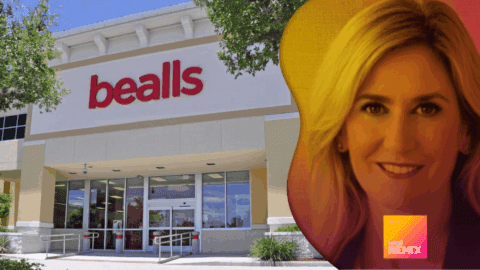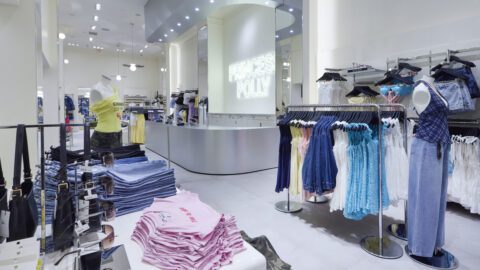Seeking to optimize its in-store experience, Vineyard Vines enlisted the aid of one of the industry’s biggest cloud platform providers — and it paid off. During the 2016 holiday season, the retailer saw its in-store queue lines decrease by more than 50% in stores deploying the Salesforce Commerce Cloud. Endless aisle capabilities, real-time inventory updates and greater efficiency receiving product shipments in stores all helped shorten lines and boost service levels.
The personalization and CRM platform provides the retailer with a number of customer experience improvements, including:
-
The ability to market both in-store and out-of-store products to shoppers;
-
Unifying the e-Commerce site with the in-store POS; and
-
Generating accurate inventory visibility across all channels.
“The piece that enticed us was that, coming out of this, it would allow us to create more of a personal experience for our customers,” said Joanne Marciano, Senior VP of Operations at Vineyard Vines. “We are first and foremost about the customer experience; not so much making our stores a selling place. We want them to have an environment that they are comfortable in — that they’d love to buy from us, not that we sell to them. That’s our angle, and with that foresight in mind, how can we personalize this experience more than where we already personalize it today?”
The specialty apparel retailer rolled out the Commerce Cloud in a limited number of its stores prior to the season’s start for a trial run. The brand plans to implement it in its remaining stores by spring.
Inventory Visibility Supports Endless Aisle Capability
The Commerce Cloud platform provides store associates with full inventory visibility across channels. Associates can gather shopper data from a tablet, smartphone or at the register to see a consumer’s past purchases, along with other information designed to better market to and aid the shopper. To complete the cross-channel cycle, associates also can use the mobile devices to help a shopper order online products that aren’t available in that specific store.
“If it’s not in that store, we can find it in another store,” said Marciano in an interview with Retail TouchPoints. “We can find it in a warehouse. Any channel that has it, we have the visibility. ‘Real-time’ means that within a few minutes it updates instead of overnight. You’re ensuring you can satisfy the customer with the product they want, because we can rely on those real-time inventory results, which is a critical piece of making this happen.”
Warehouse shipping updates inform staff at each store what types of product shipments are coming to each store, and the amount of inventory to expect each day.
“We have increased operational efficiency for store associates on how they receive product into the store and knowing where the product is,” said Karen Beebe, VP of IT for Vineyard Vines. “This increases the productivity of the sales associate, since they’re not stuck in the back office taking hours to receive the product, scan it and put it on the sales floor.”
Vineyard Vines launched as a pure play e-Commerce retailer in 1998, but now has nearly 100 stores open throughout the U.S. and sells through various other retailers. The brand asserts that its slow growth from an e-Commerce exclusive seller into a reasonably scaled cross-channel retailer helped Vineyard Vines have an easier time deploying a unified commerce platform.
“I think this is where a lot of retailers struggle today,” Marciano stated. “They started as a brick-and-mortar retailer, then they layered on e-Commerce and potentially wholesale and any other channels, but their systems didn’t support any of that integration so they’re all tied together.”
Vineyard Vines previously had a working relationship with Demandware, serving as a charter customer of the Demandware Commerce Cloud. When Salesforce acquired Demandware for $2.8 billion in June 2016 and later unveiled the rebranded Commerce Cloud in September, Vineyard Vines officially became a Salesforce partner.













